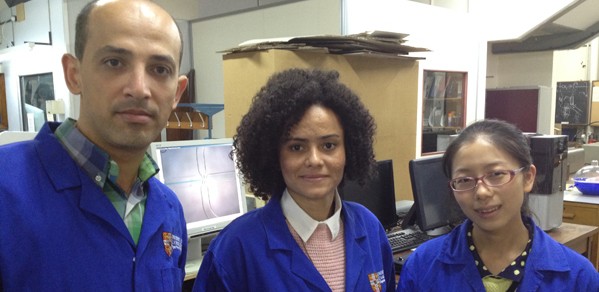
Costain, the lead industry partner in the EPSRC research project Materials for Life, won a category award at the Fiatech Celebration of Technology Innovation (CETI) Awards ceremony.
We have already made significant advances in our contribution to the deliverables of the project, developing, characterising, testing and applying self-healing components with a focus on microencapsulation techniques
Professor Al-Tabbaa
Costain won the ‘Intelligent Self-Maintaining & Repairing Operational Facility’ category for its role in helping the project develop self-healing concrete.
Costain worksites are being lined up as practical laboratories to check the properties of new self-healing concrete and other cementitious construction materials. The materials are being developed jointly by Cambridge, Cardiff and Bath Universities in the M4L project. The developed materials are expected to significantly reduce the maintenance costs and time, of their structures throughout their life.
The M4L project, funded by the EPSRC, is now entering its second year. “We have already made significant advances in our contribution to the deliverables of the project, developing, characterising, testing and applying self-healing components with a focus on microencapsulation techniques', said Professor Al-Tabbaa, the Cambridge Principal Investigator (PI). “Our M4L team of researchers is also growing fast and in addition to the existing 4 researchers, we have 2 first year PhD students who joined the team since last October: Livia Souza is producing self-healing microcapsules using microfluidics, in collaboration with Dr Alex Kabla, and Rami Alghamri is developing self-healing components through the pelletisation of mineral admixtures, collaborating with Dr Sarah Rough in the Department of Chemical Engineering. A new member will join the team this October: Wenting Mao is a new PhD student from Tongji University, who is partially funded by Shell, as part of the M4L project, to focus on developing expansive and self-healing oil-well cement. Between now and the field trials next year, we plan to produce and test in our laboratories component-scale cementitious products, to integrate the self-healing components developed by the three universities and to test one of the objectives of the project which is to develop multi-scale and recurrent self-healing capabilities within our construction materials.
Fiatech created the CETI awards to honour individuals and companies which have conducted new and emerging technology implementation. Stuart Young, from Fiatech, said: “The conference delegates loved the concept of self-healing concrete. Absolutely lapped it up and thought it was a great thing. It was showcased and discussed at length.” Fiatech has a global stage and many people take close interest in the way that it collaborates by bringing together industry, academia and subject matter experts.
Attending the Fiatech event and receiving the award was Oliver Teall, a graduate engineer at Costain, now sponsored by Costain in his PhD studies at Cardiff as part of the M4L project. Part of Costain’s role is to provide site trials for the material, expected to be ready for full-scale use by June 2015. Oliver said: “We’re at the early stages of setting up trials and are considering a number of projects. The most promising to date have been within the Highways sector but we are interested in trialling this elsewhere and we would welcome projects that are willing to support a trial to come forward.”
Costain’s Innovation and Knowledge Manager, Tim Embley said: “The benefits of the self-healing concrete, if it fulfils its early promise, would be felt by Costain’s customers. It will extend the life of key assets, optimising performance and reducing disruption of maintenance activity due to its self-healing nature. I’m delighted to see our teams are making the art of the impossible…possible.”

